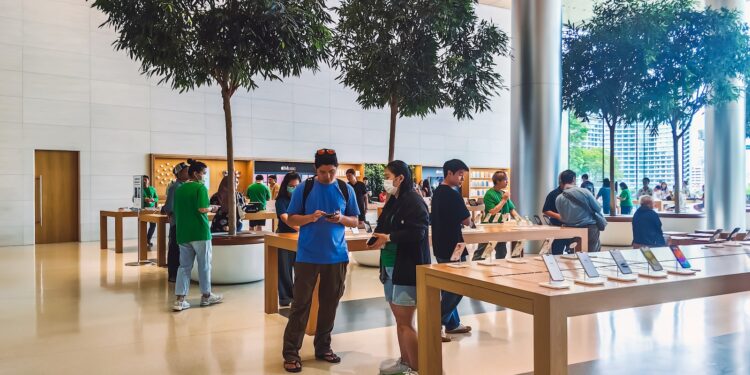In recent years, Apple has shifted some of its iPhone production from China to India. The goal was to circumvent the impact of high US tariffs on Chinese exports. This strategy has brought the company clear advantages so far. However, political developments in the US could create new challenges—especially if tariffs are also imposed on Indian exports. This report shows how potential punitive tariffs could affect Apple and iPhone production.
Apple symbolizes American innovative strength and global economic dominance. Political decisions that directly affect Apple therefore go beyond individual cases. They touch on issues of the United States' competitiveness and strategic positioning in the international technology market. Against this backdrop, potential new US tariffs on Indian goods take on even greater urgency.
Apple's production relocation to India
The decision to shift parts of the iPhone's final assembly from China to India was a strategic response to the ongoing trade conflicts between the US and China. This allowed Apple to avoid paying high import tariffs on exports from China to the US. Indian production primarily serves the US market and gives Apple flexibility in a challenging global environment.
New tariff threats from Washington
US President Trump recently suggested on the show "Squawk Box" that he would increase tariffs on imports from India. Specifically, he stated that the current rate of 25 percent could rise significantly—and within 24 hours—if India does not reduce its oil imports from Russia. The statement came as a surprise and increased pressure on India-US trade relations. This creates a new risk for Apple: The US government could impose tariffs on products from India similar to those previously imposed on goods from China.
What a 50 percent tariff would mean for Apple
Analyst Gene Munster has calculated the financial impact of a 50 percent tariff rate. According to his estimates, Apple would have to bear approximately $2.5 billion in additional tariff costs per quarter in such a scenario. Annualized, this would equate to $10 billion—or roughly seven percent of its annual operating profit. The additional decline in operating profit would amount to approximately four percent. Even such a single-digit decline represents a huge burden for a company of Apple's size.
Apple's special political role
Despite these potential additional costs, Munster does not expect Apple to feel the full impact of these tariffs. Apple plays a special role in the US economic system—as a symbol of technological excellence and a flagship of American industrial policy. In the past, the US government has granted exceptions or entered into tacit agreements in similar cases to avert harm to iconic companies. Apple's political clout is likely to play a role in potential special regulations.
Signals from the White House
At the same time, there are indications from Washington that Apple is preparing another investment announcement in the US. Such announcements have been positively received by the Trump administration in the past, even though they often involved projects already planned or underway. High-profile announcements could strengthen Apple's position in the ongoing trade talks.
Outlook on new iPhone prices
Regardless of the potential tariffs, there are growing indications that Apple will raise the base price of several models with the launch of the iPhone 17 series next month. This could be the company's response to rising production and logistics costs – especially in light of current geopolitical uncertainties.
Apple's tariff protection: policy, prices and tactical investments
Relocating production to India has so far helped Apple avoid trade conflicts with China. However, new tariffs on Indian exports would jeopardize this strategy. In a worst-case scenario, tariff-related costs could amount to $10 billion per year. Nevertheless, there are indications that Apple will not be fully affected. Political considerations and strategic communication, such as investment announcements, could protect the company from the harshest measures. At the same time, Apple is apparently responding with price adjustments for upcoming models to ensure economic stability. (Image: Shutterstock / Nach-Noth)
- Tim Cook: Apple has the most exciting roadmap yet
- Apple warns of risks in billion-dollar deal with Google
- Apple Vision Pro: Weak numbers, strong future plans
- Tim Cook is the longest-serving Apple CEO
- Apple sells three billionth iPhone since 2007
- Apple restructures AI strategy: Major acquisitions possible
- Apple faces record tariff costs in Q4
- Tim Cook: Apple is making progress with personalized Siri
- Apple expands AI division – iPhone remains growth driver
- Apple Q3/2025: Profit, revenue and services on track for record results





